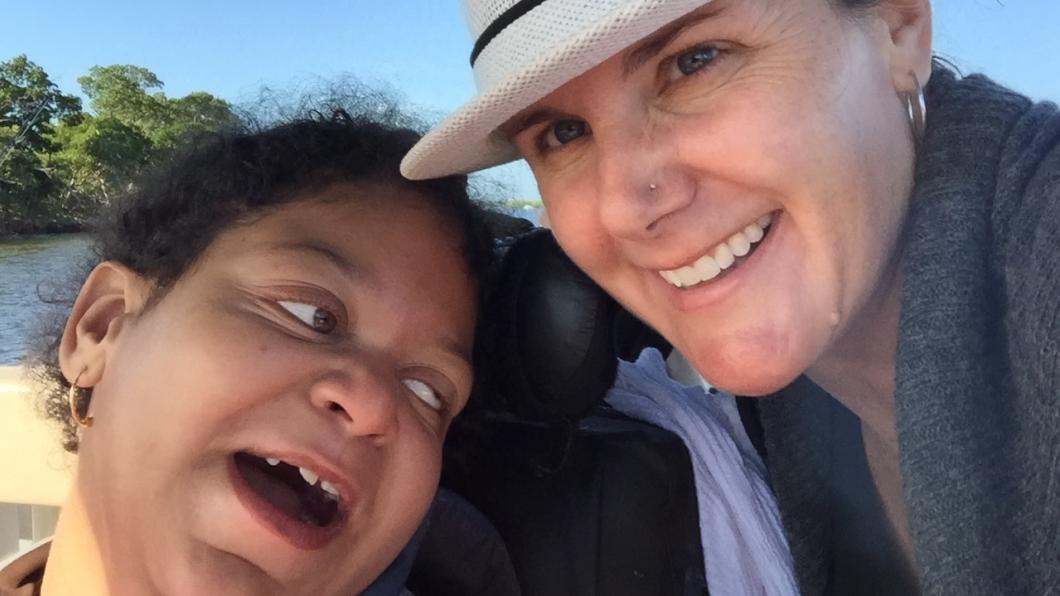
Parent-led academic rounds tackle ableism in pediatric care
Justice Hope and her mother Cara Coleman
By Louise Kinross
A series of five parent-led academic rounds on ableism in pediatric care are being developed by two bereaved American mothers of children with complex medical problems.
The virtual Family-Led Academic Grand Rounds (FLAG) begin in 2025 and will feature 10 to 14 stories from families of children with disabilities and medical fragility.
“We want to create a permanent platform to incorporate families more concretely into medical education,” says Cara Coleman, who founded The Bluebird Way Foundation in Virginia to honour her daughter Justice Hope, who died at age 11. “This is not about being on a panel once a year and telling a random story. These rounds are linked to curriculum.”
Coleman is creating the rounds with Danielle Gerber, a family engagement specialist in the Department of Pediatrics at the University of Wisconsin-Madison School of Medicine and Public Health. Gerber’s son Jack died at age four.
A flyer for the rounds, which are supported by the University of Wisconsin-Madison, notes that “Ableism, or discrimination towards children and adults with disabilities, is extremely common in pediatric healthcare.”
Coleman says a Pediatrics study last year that looked at parent perceptions of disability bias in clinicians brought the issue to the forefront.
“People were talking about that article and families have so many stories that can teach trainees. Developing relationships, communication, and getting to know children with disabilities as people is the core of the work.”
Coleman’s daughter Justice was non-speaking. Coleman says one of the greatest challenges of Justice's last year of life was getting doctors to “see and understand the pain she was in. I knew it was pain, but there was dismissal, because they said she can’t say. One night she was writhing in pain like I’ve never seen before, and she cut her legs and knees up from going back and forth. The only solution they offered was to put some padding on the bed.”
Coleman insisted on speaking to the senior resident. Ironically, that person happened to be someone Coleman had taught as a medical student. “She knew how to talk to me and ask me what I was seeing, so we could move forward on treating it.” But finding that receptivity was like looking for a needle in a haystack, Coleman says.
Families who participate in FLAG rounds will work with mentors to “hone their story down to one moment and experience that can be tied to medical education competencies,” Coleman says.
In addition to medical trainees, the rounds are open to doctors, nurses, social workers, families and anyone else interested in the pediatric population. Continuing education credits will be offered from the American Medical Association, the American Nurses Credentialing Center, and the Association of Social Work Boards Approved Continuing Education program.
Coleman says the challenges of raising children with disabilities stem from a “dysfunctional system and never the child. We need to change the system.”
Justice, she says, “was an absolute joy. She was a diva. She loved all things girly: jewellery, hair stuff, sparkles. She had Chuck Taylor Converse shoes to match every outfit, and always dressed to the nines. She communicated through a thousand smiles. Yes, she was non-verbal and non-ambulatory, but she had so many friends and so many ways of communicating, if you were willing to get to see her. That’s why I get so mad when there’s an assumption that she didn’t have a quality of life. She just did things differently. It was the system that was disabling.”
The FLAG series is funded by the Lucile Packard Foundation for Children’s Health.
Read more about FLAG rounds. Coleman's Bluebird foundation uses the arts, humanities, storytelling and narrative medicine to humanize healthcare. Like this content? Sign up for our monthly BLOOM e-letter, follow BLOOM Editor @LouiseKinross on X, or watch our A Family Like Mine video series.